The Modern Us
A comprehensive treatise on the state of the Aisling spark in the modern era
Introduction
I left these lands some 100 Deochs ago, not expecting to return.
So you can imagine that when curiosity and love of distant memories got the better of me and I again awakened in Loures, I was both shocked and intrigued to see how the lands had changed in my absence.
Welcome, fellow Aisling, to the ruminations of an old soul faced with understanding a strange, new era. In the coming paragraphs, I will attempt to create a framework for sharing my understanding of the state of the modern era: a study of today's ethics, relationships, and purpose.
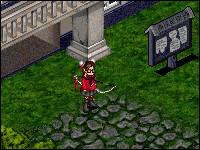
I. Mundane Involvement and the Great Exodus
To make comparisons, we must lead with a little nostalgia. So let me set the scene with a small history lesson: in Deoch 100, the Aisling experience was cooling after blazing a trail across Medenia. With about 50 Deochs behind us since the discovery of Hwarone, we had since discovered the Veltain Mines, Water Dungeon, Lost Ruins, and most recently, Aman Jungle. In another seven Deochs or so, we would discover the Yowien Territory.
Possibly the most apparent change time has granted is the dwindling population. It's almost disturbing that the most bustling areas of our past now lay abandoned. I and many others have termed the era from Deoch 100 to 120 The Great Exodus as this seems to be the time when many Aislings vanished from the lands. As shrinking populations are rarely caused by a singular issue, I propose at least two reasons why this may have occurred: an aging and disengaged community, and creation of an environment that does not nurture our new sparks. Let's take a closer look at why I propose such a thing.
As Aislings age, it's only natural that they settle into retirement, perish, or simply vanish. This, coupled with a lack of incentive from Mundane involvement, may have very well been the most impactful cause for community abandonment.
According to my research, the Mundanes were no doubt going through some kind of uncommunicated trouble as their involvement dropped to an all-time low during the Exodus. Although they seemed to spring back in the following 60 Deochs, they once again seem to be settling into their old ways, depending on recurring events and those sponsored by Aislings to spark interest. I have summarized this information below ((see the raw and compiled data on this tablet: Research)).
A distinct lack of Aislings then also means a lack of mentors. Aislings are informed in their first quests in Temuair that they soon would experience adventure and riches beyond their imagination, but are never instructed on how to achieve such things. And make no mistake - getting started in these lands is as difficult as ever, if not more so without others with which to adventure. Without qualified mentors, freshly-sparked Aislings would never again see the potential to close the ever-widening vitality and knowledge gaps examined below, so it's really no wonder that our community is a mere echo of its former self over 100 Deochs later.
It follows, then, that if hunting, politics, and recreational activities survived, that the remaining Aislings must have adapted to their challenges to survive in such a clime.
Locally, politics was calming after its explosive growth in earlier Deochs but was still very much active; I would have soon taken my third or fourth term as Mileth Guard Captain. Religious masses and Mileth College classes were still seen as popular events and drew enough Aislings to crowd doorways.
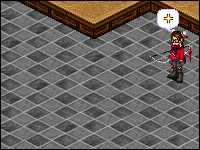
Some of the most expensive items from this era included Fire Serpent Boots and Captain's Shields;
Aislings from all walks of life would scramble from their daydreaming posts to show off such
effects in the Arena's hosted battles. And scrambled they did, as battles were only seen a few times per double-moon. Dear reader, do you remember how you felt during this era? It's sobering to see how times have changed.

II. Aislings: Hunting and Ego
Regarding hunting, Deoch 100 was a more modest time; only the powerful minority were able to dive to the darkest depths of Chaos and many hunting grounds we know today weren't yet discovered. We relied heavily on others to gather a paltry amount of gold and experience - that is, until our hunting partners began to disappear.
So how did Aislings react to the Great Exodus? Ever ingenious and driven by the desire to build, they splintered into family units headed by singular leaders to help restore a semblance of balance. Unified toward common goals, such units had no trouble hunting and gathering as needed.
The effects of concentrated efforts slowly became palpable. Along with discovery of new hunting grounds and removing some magical barriers of the past , Aislings were granted the ability to hunt faster than they ever could before; average Aisling vitality soared. But although this method worked and continues to work, it resulted in some unforeseen effects.
Logically, with more family members and easier hunting came more numerous, but more antisocial hunts. These days, Aislings often communicate in passing via bulletin boards rather than in-person chats. Aislings also allocate family members to certain small tasks that others once handled, such as slaying their own and spying on other passersby at the Mileth Altar.
What, then, is the appeal of hunting if many of us are operating within our own families and our hunts no longer pose a challenge? The answer is simple: ego.
The Mundane-maintained Aisling ledger has always been seen as a source of Aisling competition as it lists Aislings from highest to lowest total vitality. To many, jockeying for position here has become a way of life, and perhaps an obsession. Many times it's difficult to distinguish what's special about an Aisling beyond their vitality as it's all they have ever worked on; one not interested in such pursuits may only vaguely know someone exists as their life revolves around cyclical habits of hunting, marching to the Mileth Altar, and repeating.
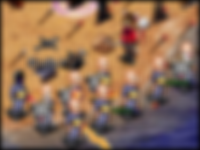
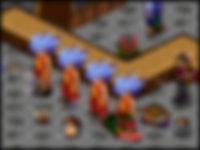
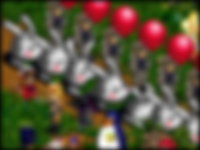
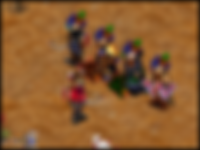
On the bright side, this generation of Aislings may very well be the most visually-identifiable we've had in quite some time; even if one hasn't personally met an individual, it's easy to identify a person by their outward appearance.
It was not my intention to sound hateful toward my fellow Aisling for the way we are currently operating. After all, when left to our own devices, what else is there to do? We may be more isolated and busier as ever, but as long as we don't encourage an air of misanthropy then perhaps there's no need to sweat the additional ego. Further, some folks no longer see the need to build strong interpersonal connections and as long as we're respectable to one another when we do pass, then perhaps all is well. I only fear for those who are without a large family or guild to lean on for support.
Let's move onto our next section and investigate what happens when common courtesy toward our fellow Aisling has failed.
Can you identify these Aislings?



III. State of the Arena
Functionally, the Arena operates in the same way it did in the days of old with a small group of Master Hosts overseeing subordinate Hosts. However, with the creation of the Arena Host Captain in Deoch 146, the rank of regular Host was made more accessible; instead of participating in a certain number of battles, Aislings were given the option of taking on a type of internship under a more seasoned Host. While incentivized to keep their titles by requiring Hosts to host battles, it is also expected that Hosts will attend the battles hosted by others, train others in the way of combat, and retain their knowledge and sportsmanship in the open arena.
That being said, hosted battles seem to have shifted to focus on a more quick-play style, often in the form of gearless free for alls. By many accounts, this seems to work well; Hosts are able to roll out many battles quickly, bypassing difficult balancing of skills within, and fulfill their two double-moon quotas while eager arena-goers are able to see several battles. It's a far-cry from the system of the past, which saw many Aislings losing out when only a handful of battles were hosted per double-moon.
But like with anything, there are certain drawbacks to this new system. For one, the internship program seems to rely heavily on certain social constraints that we will cover in just a moment. Additionally, with so many hosted battles available and the aforementioned lack of Aislings, it would seem Hosts must time their efforts to fit with Aisling peak wake times; otherwise, they practically beg for attendees.
Like everything else, the Arena has seen significant social shifts over the Deochs. Around the Deoch 100 era, power held by guilds such as Tiarnach, Enmity, and Shin Hwa was beginning to dissolve. In their wake, Leven en Dood rose to power and held it throughout the Great Exodus. However, once the Mundanes were alerted of certain corruptions enabling the guild to remain in power, action was taken and Leven en Dood, too, was dissolved. This in turn created a power vacuum that would usher in the era of modern Arena. Since then, several guilds have come forward to hold power.
Truly the heart of the Arena lies with its interpersonal relationships, however. A dwindling population has ensured that a small handful of Aislings with sour relationships changed the Arena's entire inner workings. This shift shook the Arena to its foundation, resulting in a situation where Aislings could no longer conduct themselves peaceably with opposing factions inside or outside of the Arena as they once had. The Arena is no longer fueled by the thrill of camaraderie and matching skills with like-minded groups, but rather by causing as much upset as possible for certain individuals and their followers.
Such mindsets have affected practically every other activity available to Aislingkind in some fashion. It all begs the question of why would these Aislings continue to make the choices they do if only grief is the result. If this power struggle were removed, how differently would our world appear in another 100 Deochs?
Noting the changes in these relationships will help us to better understand some items in the sections to come.
IV. Volunteer Institutions and the Almighty Incentive
The Great Exodus also had a lasting effect on our other institutions, including those we go to for law enforcement, education, and matters of faith.
Despite many Deochs of dedicated service, nobles hailing from the Mileth College also found themselves numbering fewer and fewer. Eventually, around Deoch 175, those that were left called the Mundanes to action in order to save their classrooms from falling into disrepair. The College was completely rebuilt in its own grove a small trek from its original location adjacent to Glioca Temple. With the rebuild came appointed College Chancellors capable of awarding students with College Portmanteaus filled with practical items and some antiquities. Mundane Uistean was also convinced to award students and instructors alike with redeemable daily tokens.
In their planning process, the nobles had no doubt recognized the power of incentivizing their
would-be students and instructors. The census numbers saw Aislings flocking together in a handful
of guilds and so guild creation was no longer a strong enough reason to become a noble. This,
coupled with exploration and gathering becoming a rare thrill, meant Aislings were forced to
rehash the same old stories, bestiaries, and artistry techniques. I daresay a token of thanks was the
very least the College could provide for those who continued to altruistically educate the masses
despite limited material to work with.

Today, instructors remain mostly unmotivated to teach and review the rare contest entry, while student classroom attendance is a sight to behold - a classic case of supply and demand. Perhaps the time has come where we must again consider how Aislings are incentivized to participate as it appears the era of working for free has ended.
Politics shares much the same fate as the Mileth College; perhaps even worse so. Efforts were made to make local politics more inclusive, including law rewrites that made taking office and law enforcement less restrictive. Additionally, some laws were revised to do away with antiquated practices of the past that relied on a larger community to fulfill (such as requiring judicial teams to show proof of activity to stave off Dereliction of Duty). This move may have succeeded somewhat; there remains a handful of passionate "lifers" and rotating newbies in both Mileth and Rucesion. However, with a smaller community and less crime overall, it is now expected that cases are few and far between. That's not to say crime has fully disappeared; rather, Aislings have moved their business outside of our local territories.
While it's difficult to gather older data on such matters, looking at various judiciary boards shows that Mileth politics saw around 45 cases in the last 30 Deochs, mostly pertaining to Aisling possessions during the seasonal Bug Events. Rucesion saw only about five cases, most of which occurred because of problems with the Commonwealth's own staff. It would appear the concept of incentivization (and this time, jurisdiction as well) is, again, a factor in driving up system engagement.
On the other hand, crimes defaulted to the Ranger team numbered almost 170 within the same time frame. All of the topics we have discussed thus far weave themselves into a spiderweb of struggle and the Rangers may very well have been the most affected of us all. Generally, the Ranger team remains responsible for upholding the Mundane Mandate as it always has. However, individual Rangers have tailored their enforcement styles to suit their preferences in today's society.
For example, per the Mundane Mandate, Aisling possession is prohibited. Some Rangers find some level of possession acceptable, as long as the Aisling can be roused when needed, but others deem such actions as punishable as soon as their evidence is collected. Without Mundane involvement in determining what today's standards are, Mandate enforcement has become a game of enforce what you want. The relationships forged between those from the Arena has a direct impact on Ranger activity, as well; certain alliances made between Rangers and the different factions have driven trust low. Finally, Rangers are no longer incentivized by what little payment they received in the past - namely, the satisfaction of helping others exist more comfortably in our little world. Instead, they have to precede each jail with the thought about how their actions affect our community and how viciously they may be attacked by doing nothing more than their job. It's no wonder that overall the team claims to have lost passion in their freely-made commitment.
Without incentives, our temples too lay abandoned. Religion, along with the rare guild- and Aisling-sponsored events (namely, those hosted by the Suomi Troupe) may very well be the last institutions in which Aislings donate their time with no expectation of rewards. The efforts from these Aislings are a rare gem and are worthy of our respect and praise.

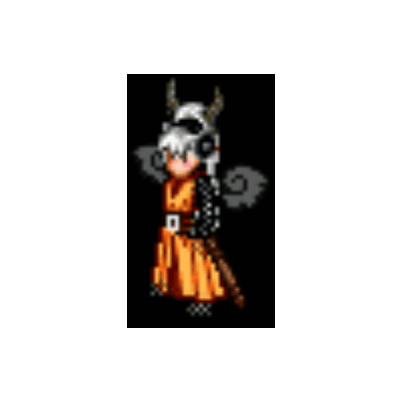
Conclusion
.jpg)
Dear readers, you will remember that we began this journey because of nostalgia - so give me a moment to mull over the concept.
Nostalgia is a powerful tool; as we Aislings stand at this singular point in time, it can lead us to yearn to reforge lost relationships, return to familiar locales, or seek out activities once viewed as fun. However, it is also capable of robbing us of our joy as we compare our romanticized pasts to what may seem like a bleak future.
Yes, these lands have changed a great deal - and not necessarily in all ways for the better. But fear not, as there is still friendship and fun to be had. You are allowed to want things for yourself and provide for your own happiness in these lands, but the template for how those things are achieved may have shifted over time. I hope what was written here today has helped you understand that better.
However, if you are still as unsatisfied as I am with the state of affairs, I urge you to command the power you have to create change. Perhaps such measures would translate into pressing the Mundanes into action by refusing to pay our taxes , small gestures such as flagging down old friends and re-acclimating them to our lands, or simply by hosting a class because you love to see your fellow Aisling have fun. Every action is important - perhaps even more so now that we are few.
After all, it was us who made these lands what they are. It was always us.
Forever in your service,
Deoch 204
Glossary
1. ((Multiple accounts)) Return to section
2. ((EXP increases and new hunting ground establishment, such as the updates found in Deoch 138/01.15.16)) Return to section
3. ((Discord)) Return to section
4. ((In-game User List - press E to access)) Return to section
5. ((AFK botting)) Return to section
6. Per the Mundane Mandate, "((Advancing a persona's points without being present. This is known as 'robot' play or 'auto-hunting' and is not tolerated))" Return to section
7. ((Registering/buying codes)) Return to section
Data tablet can be found here: Research
References and Thanks
1. ((Dark Ages official - https://www.darkages.com/index.html / All images, allusions, likenesses, etc. are Copyright © 2018 Kru Interactive. All rights reserved.))
2. The Research page makes heavy use of ((the Wayback Machine - https://web.archive.org/))
3. A big thanks to Kedian all these Deochs later for his Temuairan Time Converter ((https://aosda.net/time.html)).
4. Thank you to the following Aislings for overlooking that I stole their likenesses for the purposes of this document: Entar (the Jailbirds), xbudx (the Blue Swoops), Womp (the Tufted Skvaders), WolfRuin (the Wolf-Hawks), Como, BioMagus, Jin, MintofKali, Xoody, Professor Fen (and everyone in class), and Lady-Ranger Viveena.
5. A big thanks to AMORMON and Dylanlan for their masterful anecdotes and research for matters pertaining to the Arena.
6. Thank you to the following Aislings for their proofreading, critiques, et all: Chancellors Ramanayan and Laurier, Judge Lexem, Lady FFnine, Traku, AMORMON, Kakarott, Editor, Dayuhl, and Iglis.
7. And finally, a huge thank you goes out to readers like you - I appreciate your selflessness this day.